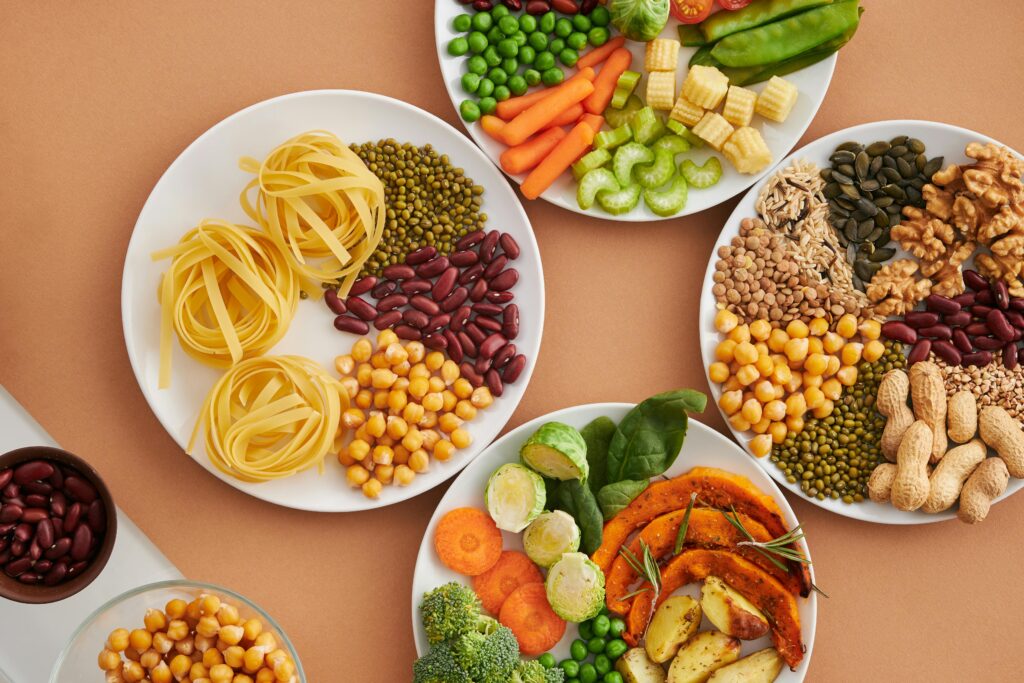Feed Your Gut Like You’d Nourish the Earth

Just as soil needs organic matter to thrive, your gut needs a diverse range of whole, unprocessed foods. Think of fiber-rich vegetables, fruits, and legumes as the compost that feeds your inner ecosystem. These foods act as prebiotics, fueling the good bacteria in your gut to keep them strong and healthy. Without proper nourishment, your gut microbiome becomes imbalanced, leading to bloating, fatigue, and even mood swings.
If you’ve been neglecting your diet, start small. Add leafy greens, root vegetables, and colorful berries to your plate, much like a farmer would enrich their soil with compost. The results may surprise you—not just in your digestion but also in your energy levels and skin. Nourishing your gut is a long-term commitment, much like regenerating depleted soil. Give your body what it craves, and you’ll be amazed at how it responds.
Rotate Your Gut Microbiome’s “Crops”
Farmers rotate crops to maintain soil fertility, and your gut thrives on a similar principle—diversity. Eating the same foods every day may feel safe, but it deprives your gut of the variety it needs to flourish. Each food provides unique nutrients that support different strains of bacteria, much like diverse crops benefit soil.
Challenge yourself to try a new ingredient or cuisine each week. Whether it’s quinoa instead of rice or fermented kimchi instead of plain salad, every little shift counts. Just like a field becomes barren without rotation, your gut’s ecosystem stagnates without diversity. Keep your gut on its toes, and it will repay you with resilience and vitality.
Use Fermentation to Restore Balance
In the same way farmers use fermented compost to breathe life into tired soil, fermented foods can revive your gut microbiome. Sauerkraut, yogurt, miso, and kefir are packed with probiotics—living microorganisms that promote a healthy balance of gut bacteria. These foods act like reinforcements, rebuilding the ecosystem within you and helping it thrive.
Incorporating fermented foods into your diet is easier than it sounds. Swap out sugary snacks for a tangy yogurt or add a spoonful of kimchi to your dinner. You’ll not only enhance your gut health but also bring exciting new flavors to your meals. Fermentation is nature’s way of renewing life—embrace it, and your gut will thank you.
Avoid Over-Cultivation—Give Your Gut a Break

Just as over-farming exhausts soil, overloading your gut with constant eating or poor food choices can cause harm. Grazing all day without giving your digestive system a rest can lead to inflammation and fatigue. Intermittent fasting, or simply spacing out meals, allows your gut to recover and regenerate.
Think of it as letting a field lie fallow to regain its strength. Skip late-night snacks or try fasting for 12 hours overnight—it’s a natural way to reset your digestive system. A well-rested gut is better equipped to absorb nutrients and ward off illness. Give it the downtime it needs, and it will bounce back stronger than ever.
Let Fiber Be Your Gut’s Cover Crop
Farmers use cover crops to protect and enrich their soil, and fiber plays a similar role in your gut health. Soluble fiber from oats, beans, and fruits feeds your good bacteria, while insoluble fiber from whole grains and vegetables helps keep everything moving. Fiber acts as a natural cleanser, sweeping away waste and fostering a thriving microbiome.
If you’re not eating enough fiber, start by adding just one extra serving a day—an apple here, some lentils there. Over time, you’ll notice improvements in digestion, energy, and even mood. Fiber may seem basic, but it’s your gut’s most essential tool for maintenance and repair. Treat it as your daily gut-cleaning ritual, and you’ll reap the benefits.
Avoid Gut “Pesticides” Like Overuse of Antibiotics
Pesticides harm soil by killing off beneficial organisms, and antibiotics can do the same to your gut. While antibiotics are lifesaving in certain cases, overusing them wipes out both harmful and helpful bacteria. This leaves your gut vulnerable to imbalances and infections, much like sterile, lifeless soil.
If you’ve recently taken antibiotics, prioritize rebuilding your gut flora with probiotics and fiber-rich foods. Even better, focus on prevention by eating a balanced diet and boosting your immunity naturally. Just as sustainable farming avoids harmful chemicals, you can protect your gut by minimizing unnecessary disruptions. Think of it as tending to a delicate garden—balance is key.
Hydrate Like You’d Water Dry Soil

Soil can’t thrive without water, and your gut is no different. Staying hydrated ensures that your digestive system functions smoothly, breaking down food and absorbing nutrients effectively. Dehydration, on the other hand, slows everything down, leading to bloating, constipation, and sluggishness.
Make it a habit to drink water consistently throughout the day—not just when you’re thirsty. Herbal teas and water-rich foods like cucumbers and melons can also help. Hydration may seem like a simple step, but it’s foundational to gut health. Like parched soil coming back to life with rain, your gut will flourish with proper hydration.
Use Natural Remedies to “Detox”
Farmers often use natural amendments like compost or charcoal to cleanse and enrich soil. Similarly, your gut can benefit from natural detoxifiers like ginger, turmeric, and activated charcoal. These remedies help reduce inflammation, soothe the digestive tract, and eliminate harmful toxins.
Incorporate them into your daily routine—add turmeric to your morning smoothie or sip on ginger tea after meals. These small, consistent practices can have a profound impact on gut health over time. Nature has all the tools you need to detox—trust its wisdom and give your gut the care it deserves.
Build Resilience with Probiotic “Armor”
Soil thrives when it’s rich in microbes, and your gut needs a similar protective layer. Probiotics act as an armor, shielding your digestive system from harmful bacteria and supporting overall gut health. They’re especially helpful after illness, stress, or dietary disruptions.
To get your daily dose, look for probiotic-rich foods like kefir, pickles, or even dark chocolate. You can also consider a high-quality probiotic supplement if needed. Think of probiotics as the guardians of your gut ecosystem, keeping everything in balance and harmony. With this shield in place, your gut will be better prepared to handle life’s challenges.
Compost Your Stress Away
Stress is to your gut what erosion is to soil—a silent destroyer. Chronic stress disrupts digestion, weakens your gut lining, and throws your microbiome off balance. Just as farmers replenish soil with compost, you can counteract stress by prioritizing self-care and mindfulness.
Incorporate relaxation techniques like deep breathing, yoga, or spending time in nature. These practices not only calm your mind but also support your gut health by reducing inflammation and improving digestion. When you manage stress, you’re not just nurturing your mental health—you’re giving your gut a chance to thrive.
Your gut and the Earth are more connected than you think. By adopting the same principles that revive dying soil, you can transform your gut health and your overall well-being. Nature provides a perfect blueprint—one that’s sustainable, intuitive, and deeply nourishing.
Whether it’s diversifying your diet, hydrating consistently, or embracing probiotics, every small step brings you closer to a healthier you. Listen to your body, honor its needs, and trust the rhythms of nature. When you heal your gut, you’re not just improving digestion—you’re unlocking a better, more vibrant version of yourself. Let nature be your guide, and watch the transformation unfold.
